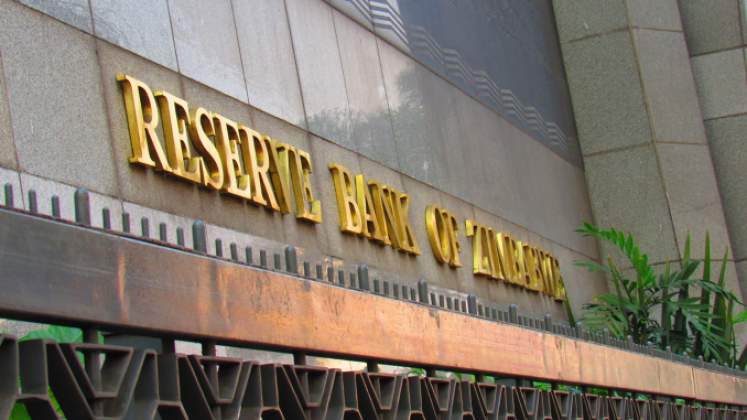
BY SHAME MAKOSHORI ZIMBABWE’S cash-strapped government has turned to banks for a $2,1 billion bailout to bankroll public expenditure programmes and bolster its weak cashflows.
Under the programme, government will this morning float a Treasury Bill (TB) for three hours and close it before midday.
The TB will mature after 270 days, according to a statement released by the Reserve Bank of Zimbabwe (RBZ) yesterday.
The central bank said allotments would be determined by the weighted average rate.
“The Reserve Bank of Zimbabwe on behalf of the government of Zimbabwe hereby invites commercial banks, building societies, POSB and IDBZ (Infrastructural Development Bank) to subscribe to a government Treasury Bill tender amounting to ($2 100 000 000),” RBZ said in a note sent to banks.
“The number of bids per investor is restricted to two and copies. (Proceeds from the TBs will be used for) funding of government programmes and cashflow management. (The TB is) acceptable as collateral for accommodation by the RBZ,” the central bank said, noting that the paper would also have a prescribed and liquid asset status, along with being exempted from tax.
Floatation of TBs are a common way used by governments to raise funding.
But Zimbabwe’s government has battled to fund crucial programmes due to a dire economic crisis that has been highlighted by exchange rate volatilities and high inflation, which has battered the domestic currency.
- Chamisa under fire over US$120K donation
- Mavhunga puts DeMbare into Chibuku quarterfinals
- Pension funds bet on Cabora Bassa oilfields
- Councils defy govt fire tender directive
Keep Reading
Problems confronting Zimbabwe span from a dilapidated road network, a health delivery crisis, along with serious incapacities to pay a bloated and frustrated civil service, including teachers who have vowed not to deliver until government reverts to United States dollar salaries.
The good thing is, despite of its multifaceted problems, the government of Zimbabwe has no history of defaulting, and investors still troop to take up its TBs.
President Emmerson Mnangagwa’s administration stopped borrowing from the RBZ in 2018, as part of efforts to manage a huge national debt of almost US$14 billion.
However, interventions like flouting TBs would still escalate the southern African country’s debt distress. Last week, Finance and Economic Development deputy minister, Clemence Chiduwa said government would continue pursuing a cash budgeting system, instead of seeking recourse from the central bank.
“Our current account is in surplus,” he told Parliament.
“You look at government expenditure vis-à-vis the revenue that we are generating as Treasury. Since November 2018 we have not borrowed from the central bank. We live within our means. We run a cash budget. The release of resources follow a programme based budgeting. We have got a liquidity management committee,” he added.
- Follow NewsDay on Twitter @NewsDayZimbabwe











